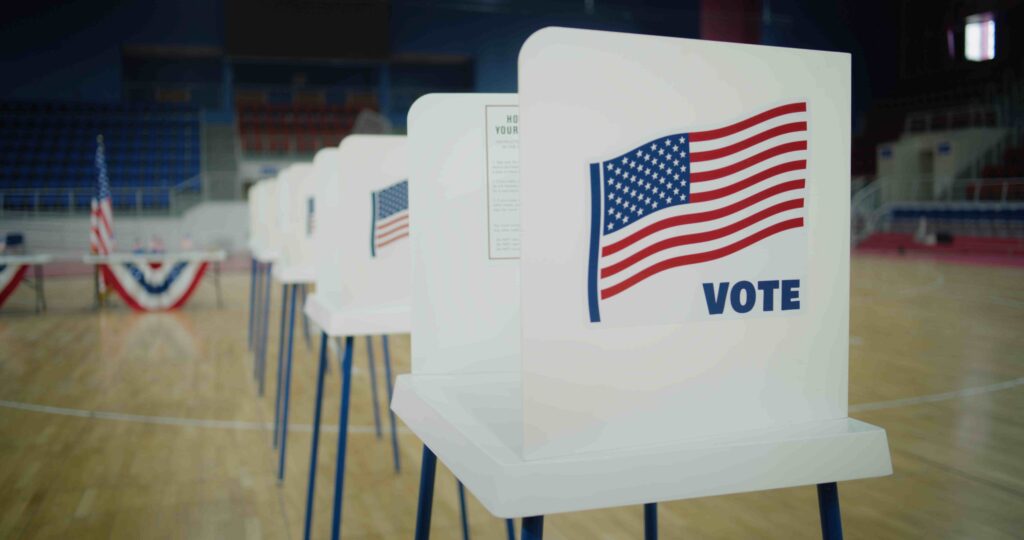Election years in the United States present a time of potential change and uncertainty, particularly when it comes to federal and state employment laws. Understanding these impacts is crucial for employers looking to maintain compliance and adapt their hiring practices accordingly.
The Influence of Elections on Employment Laws
Federal and state election outcomes significantly affect employment laws, with each administration bringing its own priorities and legislative agendas. For instance, there have been notable shifts in policies regarding minimum wage, sick pay, healthcare, and worker classification under the Biden administration.
Consider the new independent contractor rule that went into effect in early 2024, which modifies the previous standard set during former President Trump’s term. The Trump-era rule focused on five specific factors to assess a worker’s status, which many companies found more straightforward for maintaining their existing contractor relationships. President Biden’s updated rule introduced a more stringent six-factor test, intended to align more closely with prevailing case law and to enhance efforts against worker misclassification. Although this change aims to tighten regulations, some legal experts from the management side have voiced concerns that the Department of Labor was already extending beyond the five-factor approach in its enforcement actions prior to the introduction of this new rule.
The evolving landscape of federal labor policies such as this one underscores the need for employers to prepare for changes that could affect their operations and workforce management.
Industries Most Often Impacted by Changes in Government Policy
Certain sectors are particularly susceptible to regulatory fluctuations following elections. Heavily regulated industries or those dependent on government contracts, subsidies, or trade agreements — such as healthcare, defense, insurance, and energy — often feel the most significant impacts. For example, insurance companies and healthcare providers may experience changes in regulations and reimbursement policies, defense companies might see shifts in spending and contract awards, and energy companies could face policy adjustments in response to climate change debates. Candidates’ positions on energy production, environmental protection, and climate change can influence policies related to fossil fuels, renewable energy, emissions regulations, and environmental conservation efforts.
Of course, the specific effects will depend on the policy agendas of the candidates and the priorities of the incoming administration and legislative bodies. However, understanding these dynamics is essential for businesses across sectors to navigate the post-election landscape effectively.
Common Misconceptions Around the Effects of Elections
A common misconception among employers is the immediate impact of federal elections on employment laws. In reality, many changes in government policy affecting businesses often take time to pass and implement, such as the Biden administration’s modifications to independent contractor classifications, which were introduced more than a year before the rule went into effect. Employers must stay informed and anticipate these timelines to adjust their practices accordingly.
Additionally, employers often underestimate the importance of state and local elections. Many employment laws, such as minimum wage rates, paid leave requirements, and antidiscrimination protections, are enacted at the state or local level and can vary widely. For example, while there is no federal mandate for sick pay, certain cities in California have implemented their own requirements. And in January 2024, it became a statewide mandate to provide sick pay to all employees.
Proactive Strategies for Employers
To mitigate the risks associated with legislative changes and stay informed, employers can adopt several proactive strategies.
One thing my company has found to be beneficial is joining industry associations to stay abreast of legislative priorities and potential impacts on hiring practices. We also collaborate with peers and industry leaders to advocate for policies that support our business needs while complying with legal requirements. In our industry, the American Staffing Association has been a valuable advocate for the staffing sector, especially during election changes affecting hiring practices.
Through your own industry associations or outreach, you can engage in dialogue with policymakers, legislators, and regulatory agencies to provide input on proposed legislation and advocate for policies that support your organization’s objectives.
Additionally, regular training sessions for HR and legal teams can help ensure your staff remains informed about the latest employment laws and regulatory requirements. This proactive approach aids in compliance while empowering your teams to anticipate and react swiftly to changes that could affect your business.
Developing multiple scenarios to plan for different legislative outcomes can also help mitigate risks. Scenario planning involves preparing for a range of possible regulatory changes and having action plans ready to implement, ensuring that your business remains flexible and responsive.
Finally, encouraging a culture of compliance within your organization can also ensure that all levels of the workforce understand the importance of adhering to employment laws and are vigilant about maintaining compliance. This cultural shift can reduce the risk of noncompliance and promote a more disciplined approach to regulatory changes.
Innovative Employee Solutions can help take the compliance burden off your company. As an employer of record, IES ensures compliance with legislative changes across all 50 states and globally, so you don’t have to. Partnering with IES means you can be confident that the workers you engage are managed with the same level of compliance as your full-time employees. This partnership not only helps mitigate risks, but also aids in adapting pricing and practices in response to new regulations.
Staying Ahead: Navigating Employment Law Changes During Election Years
Election years bring a degree of uncertainty that can affect various aspects of business operations, especially in terms of employment laws. By understanding the potential impacts of election outcomes, engaging in proactive advocacy, and partnering with knowledgeable compliance experts like IES, employers can navigate these changes effectively. This approach ensures operational continuity and legal compliance, enabling businesses to focus on growth and stability in a dynamic political climate.






